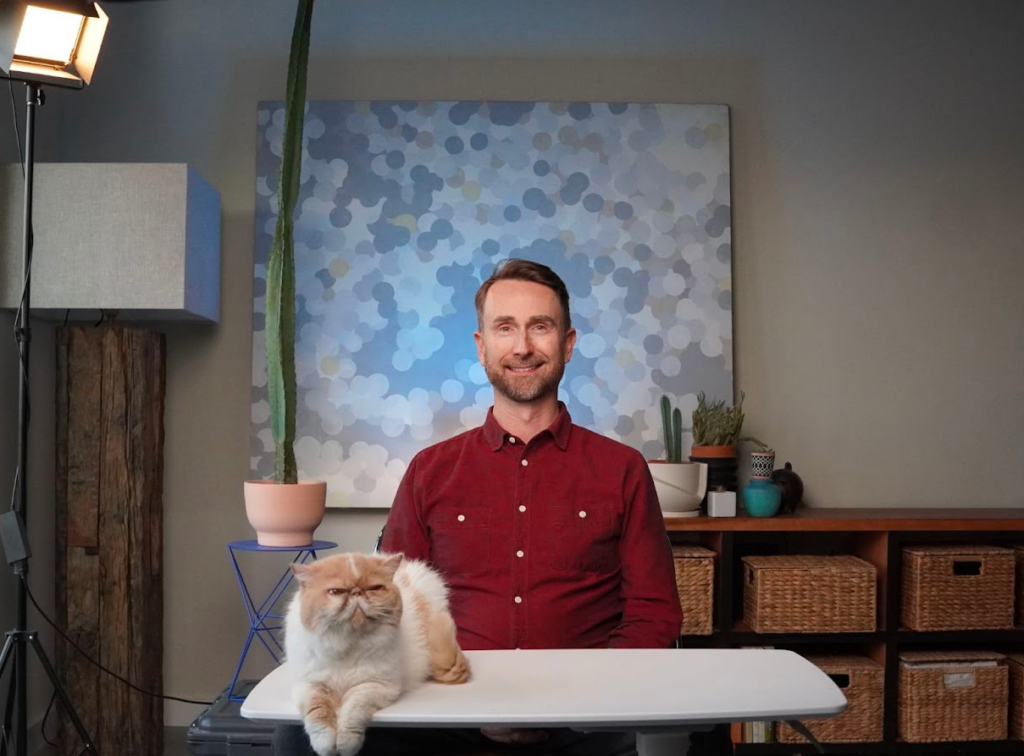Rory Sutherland’s Paradox: What makes something stand out in a big way is often a small thing
I once landed a consulting gig where an organization asked me to help them put on a virtual conference. I pitched them a grandiose vision: state-of-the-art participant experience, elegant marketing strategies, high-energy facilitation. The price I charged corresponded with the vision; it wasn’t cheap.
They went for it and the conference was a huge success: compelling speakers, engaged audiences, smiling faces. In the post-conference feedback session, I asked the participants why they liked it so much. I remember leaning back in my chair, ready to pat myself on the back and bask in praise about my vision and strategies.
“We really loved the music,” one person offered.
Another chimed in: “Yeah, the music!!!!” A dozen heads nodded in vigorous agreement.
My face probably betrayed the voice in my head: I’m a big shot education entrepreneur! I built an education company that runs programs onsite in 50 countries! I’m a professor at the University of Texas. AND ALL YOU CAN SAY IS THAT YOU’RE GLAD WE PLAYED BAD BUNNY???!!!
Turns out they expected an online conference to be awful and they had never experienced high quality audio in Zoom. And not only had we made audience-friendly music choices, we made a point of taking song requests, which made them feel included and engaged. After all of that vision and expertise, what made the experience stand out was…the DJing.
Little Thing, Big Impact
If I’d known about Rory Sutherland at the time, I wouldn’t have been caught off guard.
He is the Vice Chairman of Ogilvy, one of Europe’s most prestigious advertising, marketing, and public relations agencies. Sutherland is fascinated with how humans fail to be honest about what they value and how human decision making doesn’t follow logical patterns.
In the first of his three TED talks, he shares a story about Virgin Airlines’ passenger experience. In first class, the salt and pepper shakers have a cute airplane-theme. The underside of these shakers reads “Pinched from Virgin Atlantic.” The airline knows that the urge to steal these is almost irresistible. By giving you permission to do just that and sharing the joke with you, it’s a wink and a smile.
In order to do first class properly, they had to make it a premium experience. This is a necessary but insufficient condition for business success. After all, United and American and Delta all have first class seats.
To separate yourself from the incumbents, small things like Virgin’s salt shakers or taking music requests during a conference is what truly strikes a chord with customers.
Premium Communication
When Rory said “we can’t help but assume the importance of a message is proportional to the cost of delivering it,” he revealed that it’s not just products and services that can be premium. To him, certain types of communication are worth more than others.
This explains why it feels better to receive a handwritten letter than an email or why a girl feels different about a guy who shows up to a date with a dozen roses. The letter recipient knows that the sender took the time and effort to write the message by hand. The girl knows that the guy had to find time in his schedule and schlep through rush hour traffic to get to the florist. These messages were “expensive” in terms of costing more to deliver them, and this effort shapes how the recipient feels about it.
Rory’s insight here shaped how I approach business. On a regular basis, I send short personalized videos to people and organizations I want to work with. These videos cause my prospects to value my work more highly for a few reasons.
First off, it’s special to receive a video made just for you. Sending an email is easy—anyone can do that. But filming a video just for one person? The recipient knows I went to the trouble just for them.
The second thing is that I invested in a modest home studio. With some inexpensive equipment (NB: buying guide at end of post) and some experimentation, I set up a background that many people think is Hollywood quality (it’s definitely not. They just don’t know enough to know it’s not). Receiving a personalized video message with decent production value is a unique experience.

The best part is how repeatable it is. Once you get a decent setup in place, you can rinse-and-repeat.
This approach has won me deals with Apple, SVB, Intel, and the U.S. Department of State. Understanding Rory’s perspective is what unlocked this strategy for me.
Go Down the Rory Rabbithole
Rory’s ideas have changed the trajectory of my life and work. He’s easy to find—he’s active on Twitter and has guested on hundreds of podcasts. But don’t start with podcasts; there are too many of them and many podcast hosts are hit or miss.
I recommend you start with Rory’s Ted Talks, which comprise distilled knowledge with tight editing:
- Life lessons from an Ad Man: The value of a product lies not in what it is, but in how we perceive it.
- Perspective is Everything: The way we see problems often matters more than the problems themselves.
- Sweat the Small Stuff: “Sweat the Small Stuff”: Small changes can have a big impact; it’s essential to ‘sweat the small stuff.’
If those resonate, buy his first book: Alchemy. This book unpacks his perspective and kickstarts your own mind’s ability to see the world in a similar way, using examples of why Red Bull tastes terrible (the noxious flavor signals strength and efficacy in “giving you wings”) and why humans are irrational (“Male strippers dress as firemen, not accountants; bravery is sexy, but rationality isn’t”).
Spend a couple hours with this book and you’ll refine your own lens for seeing how you can make your own work resonate deeper and feel more valuable.
If you want to send personalized videos to grow your business, join my newsletter or claim your spot in my cohort-based course, Minimum Viable Video, which teaches camera confidence, fundamentals of video production, and on camera storytelling.
Coda: Here’s a gear guide if you want to set up a home studio.
Thanks to early readers: Francis Corrigan, Rick McClelland, Camilo Moreno-Salamanca, Sean Murphy
